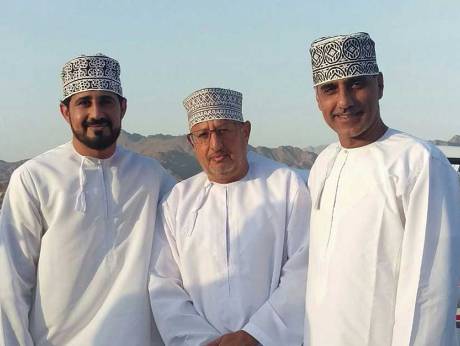In August, Americans for Democracy & Human Rights in Bahrain (ADHRB) covered the initial arrest of three Azamn newspaper journalists and the paper’s suspension in Oman. The crimes were related to a report Azamn published on 26 July 2016 that criticized Oman’s judicial system. Two days after the report’s release, Omani authorities arrested the founder and Editor-in-Chief, Ibrahim al-Ma’mari. Two weeks after that, the government suspended Azamn. Now, two months later, an Omani court announced its verdict: the newspaper is to be permanently shut down and the journalists sentenced to prison terms.
According to the Coalition to Protect Journalists (CPJ), the Azamn report in question was an investigation of the head of the Omani Supreme Court’s handling of an inheritance dispute, leading many to question the judiciary’s independence. After the authorities first arrested al-Ma’mari, Oman’s Ministry of Information ordered Azamn to cease the ongoing report. Despite the warning, Deputy Editor-in-Chief Yousef al-Haj published sections of an interview with the vice president of Oman’s Supreme Court, exposing evidence of corruption. The government immediately arrested al-Haj. Three days later, authorities arrested an editor at Azamn, Zaher al-Abri, for tweeting about al-Ma’mari’s arrest. In the following weeks, the government also detained Supreme Court deputy Ali al-Numani, a judge who contributed to Azamn’s original report. Furthermore, the court ordered a ban on publishing any news of the journalists’ arrests and soon thereafter suspended Azamn entirely.
On 26 September, an Omani court sentenced the three journalists to prison with bail, pending appeal, and ordered Azamn to shut down permanently. The court sentenced al-Ma’mari and al-Haj to three years with $130,000 bail, $7,800 fines, and one-year bans from journalism. Judges sentenced al-Abri to one year in prison with $13,000 bail and a $2,600 fine. The court sentenced them on the grounds of disturbing public order, misusing the internet, undermining the prestige of the state, and illegally publishing documents of an open court case. Al-Abri was released on bail shortly after his initial arrest, and on 11 October, the authorities released al-Ma’mari and al-Haj on an adjusted bail of $5,000 each. However, the charges against the journalists still stand, and the final trial will be held on 7 November.
Over the past several years, the Government of Oman has repeatedly violated basic human rights like that to freedom of speech. The authorities have targeted a number of journalists, activists, and human rights advocates with arbitrary arrests and harassment. Since 2013, for example, government forces have judicially harassed human rights activist and blogger Said al-Jaddad at least three separate times. In November 2015, a court upheld a one-year prison sentence against al-Jaddad for “inciting to break national unity and spreading discord within society” through a blog he wrote about Oman’s 2011 protests. Earlier, in September 2015, another court upheld a suspended three-year prison sentence against him for “undermining the prestige of the state,” and “using information networks to disseminate news that would prejudice public order” in relation to his free expression online. Omani authorities released Jaddad on 26 August 2016, after he completed the one-year sentence. Maina Kiai, the UN special rapporteur on the rights of peaceful assembly and of association, noted in 2014 that there is a “pervasive culture of silence and fear effecting anyone who wants to speak and work for reforms [in Oman].”
Oman has acceded to the Arab Charter on Human Rights but it has not ratified the articles guaranteeing citizens the freedom of opinion and expression in the form of any medium. Within its penal code, Oman prohibits public gatherings without governmental approval. Private gatherings of ten or more people who have intentions to commit a riot or “breach public order” are subjected to a fine. In March 2016, the Government of Oman rejected United Nations (UN) Universal Periodic Review (UPR) recommendations “to guarantee the rights to freedom of expression, association and assembly, including a recommendation to support civil society organizations.”
The Government of Oman must cease violating human rights and drop all charges against journalists for doing their job, such as Ibrahim al-Ma’mari, Yousef al-Haj, and Zaher al-Abri. Omani courts should also rescind the order closing Azamn. Additionally, the government must reform its penal code to align with international standards protecting free expression. By taking steps to reform, such as accepting relevant UPR recommendations, the Government of Oman should work towards creating a domestic legal framework that guarantees the rights to peaceful assembly, freedom of opinion, and freedom of speech.
Megan Brown is an Advocacy Intern at ADHRB.





